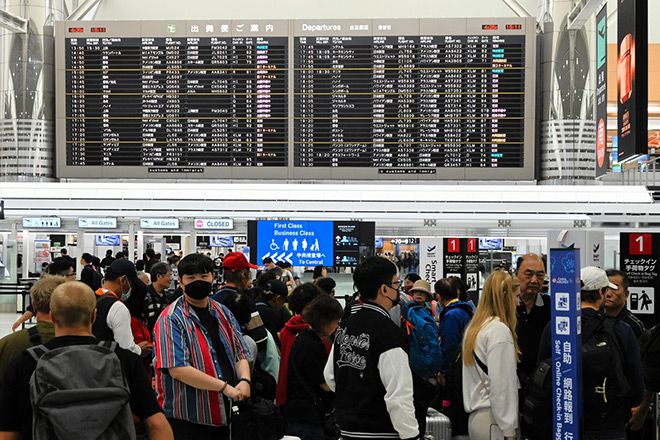The Japanese government is planning a wave of fee and tax hikes targeting foreign nationals that will affect the airport departure tax and visa processing fee. There will also be a new charge for pre-entry screening.
Justifying the move, officials said Japan’s current fees are low by international standards.
The government has said it intends to use the increased revenue to help alleviate airport congestion and strengthen screening processes and that any significant surplus could be redirected to other policies.
A proposal is already on the table to use such funds to expand free high school tuition, a policy agreed on by the Liberal Democratic Party when it ruled in coalition with Komeito. The policy is being maintained under the party’s new coalition agreement with the opposition Nippon Ishin (Japan Innovation Party).
Securing a stable source of funding for policies like the free high school tuition expansion and abolition of the provisional gasoline tax has proven difficult.
The new plan shifts part of the burden onto foreign nationals, who do not have voting rights in Japan and are less likely to generate a political backlash.
While revising overly low fees would seem reasonable, at least one expert urged caution so as not to hinder international exchanges.
DEPARTURE TAX INCREASE
One of the key changes under consideration for fiscal 2026 is an increase in the international tourist tax, also known as the “departure tax.”
Established in 2019, each departing passenger is currently obliged to pay a levy of 1,000 yen ($6.70).
The government envisages raising the fee, referencing international standards. Purely as an example, the levy in the United States is $22.20 (3,300 yen).
The departure tax is collected from Japanese citizens as well as foreign nationals.
To avoid increasing the burden on its own nationals, the government has floated the idea of lowering the fees for obtaining or renewing Japanese passports.
VISA AND ENTRY FEES
The “basic policies for economic and fiscal management and reform” approved by the Cabinet in June also called for a review of visa and residency-related fees, considering “the levels in major countries.”
The foreign and justice ministries are now working out the details, with the government’s position being to “raise fees that were too low to international levels.”
The government also plans to introduce the Japan Electronic System for Travel Authorization (JESTA) in fiscal 2028, which will require pre-screening for foreign nationals entering from visa-waiver countries.
A fee will be charged for this service, again using the U.S. model of $40, or approximately 6,000 yen, as a reference.
LONG-OVERDUE UPDATES
Japan’s entry-related fees have long been considered low by world standards.
The urgency of the review stems from the government’s struggle to secure the 400 billion yen needed to expand free high school tuition, which began rolling out this fiscal year.
According to multiple government sources, the new revenue from increased fees for foreign nationals could generate around 300 billion yen.
The push to raise fees for foreigners is also driven by domestic political constraints.
Given existing inflation, the government is reluctant to impose new burdens on the Japanese people.
“I don’t understand why the fees have remained unchanged for so long,” said a Foreign Ministry official who oversees visa issuance.
Japan’s visa fees have not changed since 1978.
The charge for a single-entry visa to Japan is about 3,000 yen, while a U.S. tourist/business visa is $185 (around 28,000 yen). European Union countries charge 90 euros, about 16,000 yen.
The government is also reviewing fees for residency procedures.
Although some fees were raised this past April, for many it was the first update in 44 years, since 1981.
TAX-FREE SHOPPING UNDER SCRUTINY
Within the LDP, there are calls to abolish the consumption tax exemption for foreign visitors.
However, one government official questioned the approach, saying, “Targeting easy sources of revenue is not the right way to go.”
Hideaki Tanaka, a professor of public finance at Meiji University in Tokyo, agreed that fee increases were necessary but said, “We must be careful not to impose an excessive burden that could hinder international exchanges.”


AloJapan.com